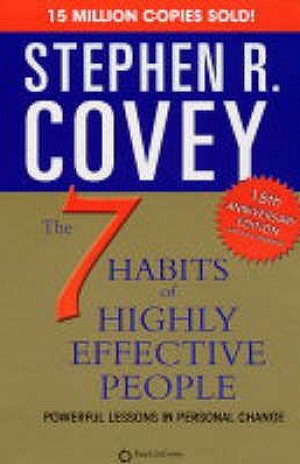What I'll be trying on the first day back Part 2!
I will start this post with a bit of pretext at the macro level. If you want to skip this, jump to paragraph 4.
I once worked in an inner-city London school, it was a non-selective school and so had a full comprehensive mix of students from the surrounding burroughs. 18 years ago, the school had 45% achieving 5 A*-C's at GCSE. For the past 10 years, the figure has been above 80%. Today the figure is 93%, yes that includes English and Maths! The headteacher once asked us the rhetorical question, "How did we turn it all around?" Answers varied from: Excellent teachers, small class sizes, a good leadership team, investing in the building, recruitment, teaching to the exam etc.
Her answer: "Whilst all of those things are important, none of it can happen without behaviour management. It doesn't matter if you recruit the most innovative and passionate teachers if bums are not on seats in lessons". In many schools across England, you can walk into a classroom before the teacher arrives and there is chaos...the teacher then has to spend 5 minutes instilling order.

Source: Multivox
There must be a way of having an orderly school with learners ready as soon as they enter a classroom. As a headteacher, she decided to find people who were strict, I will define this as teachers who could manage behaviour no-matter how challenging this was by applying a firm and fair behaviour policy, consistently every time.
She firmly believed that all kids inherently want to rebel. If you ban the use of MP3 players in lessons but allow it at break, one way of rebelling is walking into a lesson with your headphones on. However if you remove that barrier altogether by banning MP3 players within school time or within the school gates, you take that out of the equation. The mere sight of an MP3 player resulted in confiscation.
With this philosophy in mind, she set a strict uniform policy and her staff enforced it down to the minute details. It was an all-girls comprehensive and girls were only allowed to wear a blue, black or white headband. A child who might want to rebel would wear a pink hair accessory. The thing is there's a great difference in how much this rebellious act disrupts learning. In one school a child rebels by listening to music in class in another school a child rebels by wearing the wrong colour hair accessory. Clearly in the latter the impact to learning is minimal, yet students are still temporarily rebelling in the same way that any child wants to rebel at some point in their school career.
On the micro level, if you walk into any classroom of an outstanding teacher who generally delivers good or outstanding lessons. What do they have in common? If it's one thing that I've noticed in my 7 years of teaching it is this; they all exercise complete control of the classroom environment. Students know what is expected, "how things are run" as it were. They know exactly what is and what is not acceptable and that is because the teacher executes a behaviour management policy fairly and consistently. That is all. On top of that the teachers will differentiate, ensure marking is timely, actionable and specific, use a variety of assessment strategies, use lots of praise and constantly challenge their students of course. However, as a new teacher, I certainly remember focussing on all these other things, ticking all the boxes on the Ofsted-ready lesson plan. In hindsight, I should have started the year focussing on one thing- behaviour management. My school had a behaviour management policy, perhaps at times it wasn't explicit enough. Indeed, I have been in schools where there isn't a behaviour management policy or it is just very fluffy. If this is the case, you need to develop your own. Be explicit, train the students in it, be fair and consistent in its application. Even if "student X" is normally a "nice kid", if they talk when you are talking, you have to give a detention. They may cry and it may hurt you inside a little the first time you have to do this, but it will pay dividends later in the year. Why? You may ask. Why does my classroom need to run consistently like a machine? And does this mean there will be a room full of compliant robots with no creativity?
No. Quite the opposite in fact. Structure liberates. If you want to see this in action, visit a dance or drama class at any leading school. The routines, rituals and behaviour management is always solid. Yet the students are able to be happy and creative learners all the same. When students know what is expected of them, they do not need to expend emotional or thinking time deliberating their actions and behaviours. They know what is expected of their behaviour, so they can focus on their learning. They can go from remembering and understanding all the way up to Analysing, Evaluating and Creating much quicker and their learning is much richer.
Indeed, differentiated worksheets and creative lessons cannot work without a controlled environment. It took me six years of teaching to realise this. I thought teaching was all about "teaching engaging lessons". In a way I was partly right, but in order to get there I needed to manage behaviour and exercise full control of my classroom first. "Engagement" is a dangerous aim to have and in an inner-city environment, you think that engagement is your ultimate means for success. "If I can engage everyone with exciting content and delivery, then students can learn and make progress". I still believe in this somewhat, but it is not the be-all and end all to an outstanding teacher.
I wanted to write this in August in time for teachers starting in September. If I were to give advice to any teacher starting a new school or simply a new year. I'd tell them that for the first 2 weeks, focus simply on behaviour and learning names. The lesson activities which introduce your subject are important, but without total engagement and control, it doesn't matter how fancy your slides are that you spent 6 hours preparing. Tom Bennett's top ten behaviour tips is essential reading if you don't have a week to read a book. Likewise, all his resources are worth dipping in to.
These two documents from Edutopia are also worth printing out and reading on your commute to school (unless you drive of course!)
10 Tips for Classroom Management (PDF)
7-tips-for-better-classroom-management-tyler-hester
If you are a member of SLT, help your teachers by designing an explicit behaviour policy that cannot be misinterpreted. Sweat the small stuff and make sure that teachers are applying it consistently. It will make your school a more pleasant place to be in and no, it won't hamper creativity. My first inner-city London school had a Performing Arts specialism and was recently awarded "Teaching school" status. There was no lack of creativity there and no, I don't think it will impact negatively on student happiness and well-being. It makes perfect sense when you look at Maslow's hierarchy.

Source: Wikimedia Commons
Students cannot attain self-actualization, they cannot learn effectively and efficiently unless they feel safe first. Consistent behaviour management through rules and routines ensures a safe learning environment in which teachers can teach.
If there is anything more important than behaviour management, I'd love to hear your views. I under-valued this aspect of teaching for so long because I didn't want to be the strict/mean teacher. However, having applied my school's extensive behaviour policy this year, I'm happier and the students are happier and we're making great progress together. It's a refreshing change!
I will start this post with a bit of pretext at the macro level. If you want to skip this, jump to paragraph 4.
I once worked in an inner-city London school, it was a non-selective school and so had a full comprehensive mix of students from the surrounding burroughs. 18 years ago, the school had 45% achieving 5 A*-C's at GCSE. For the past 10 years, the figure has been above 80%. Today the figure is 93%, yes that includes English and Maths! The headteacher once asked us the rhetorical question, "How did we turn it all around?" Answers varied from: Excellent teachers, small class sizes, a good leadership team, investing in the building, recruitment, teaching to the exam etc.
Her answer: "Whilst all of those things are important, none of it can happen without behaviour management. It doesn't matter if you recruit the most innovative and passionate teachers if bums are not on seats in lessons". In many schools across England, you can walk into a classroom before the teacher arrives and there is chaos...the teacher then has to spend 5 minutes instilling order.

Source: Multivox
There must be a way of having an orderly school with learners ready as soon as they enter a classroom. As a headteacher, she decided to find people who were strict, I will define this as teachers who could manage behaviour no-matter how challenging this was by applying a firm and fair behaviour policy, consistently every time.
She firmly believed that all kids inherently want to rebel. If you ban the use of MP3 players in lessons but allow it at break, one way of rebelling is walking into a lesson with your headphones on. However if you remove that barrier altogether by banning MP3 players within school time or within the school gates, you take that out of the equation. The mere sight of an MP3 player resulted in confiscation.
With this philosophy in mind, she set a strict uniform policy and her staff enforced it down to the minute details. It was an all-girls comprehensive and girls were only allowed to wear a blue, black or white headband. A child who might want to rebel would wear a pink hair accessory. The thing is there's a great difference in how much this rebellious act disrupts learning. In one school a child rebels by listening to music in class in another school a child rebels by wearing the wrong colour hair accessory. Clearly in the latter the impact to learning is minimal, yet students are still temporarily rebelling in the same way that any child wants to rebel at some point in their school career.
On the micro level, if you walk into any classroom of an outstanding teacher who generally delivers good or outstanding lessons. What do they have in common? If it's one thing that I've noticed in my 7 years of teaching it is this; they all exercise complete control of the classroom environment. Students know what is expected, "how things are run" as it were. They know exactly what is and what is not acceptable and that is because the teacher executes a behaviour management policy fairly and consistently. That is all. On top of that the teachers will differentiate, ensure marking is timely, actionable and specific, use a variety of assessment strategies, use lots of praise and constantly challenge their students of course. However, as a new teacher, I certainly remember focussing on all these other things, ticking all the boxes on the Ofsted-ready lesson plan. In hindsight, I should have started the year focussing on one thing- behaviour management. My school had a behaviour management policy, perhaps at times it wasn't explicit enough. Indeed, I have been in schools where there isn't a behaviour management policy or it is just very fluffy. If this is the case, you need to develop your own. Be explicit, train the students in it, be fair and consistent in its application. Even if "student X" is normally a "nice kid", if they talk when you are talking, you have to give a detention. They may cry and it may hurt you inside a little the first time you have to do this, but it will pay dividends later in the year. Why? You may ask. Why does my classroom need to run consistently like a machine? And does this mean there will be a room full of compliant robots with no creativity?
No. Quite the opposite in fact. Structure liberates. If you want to see this in action, visit a dance or drama class at any leading school. The routines, rituals and behaviour management is always solid. Yet the students are able to be happy and creative learners all the same. When students know what is expected of them, they do not need to expend emotional or thinking time deliberating their actions and behaviours. They know what is expected of their behaviour, so they can focus on their learning. They can go from remembering and understanding all the way up to Analysing, Evaluating and Creating much quicker and their learning is much richer.
Indeed, differentiated worksheets and creative lessons cannot work without a controlled environment. It took me six years of teaching to realise this. I thought teaching was all about "teaching engaging lessons". In a way I was partly right, but in order to get there I needed to manage behaviour and exercise full control of my classroom first. "Engagement" is a dangerous aim to have and in an inner-city environment, you think that engagement is your ultimate means for success. "If I can engage everyone with exciting content and delivery, then students can learn and make progress". I still believe in this somewhat, but it is not the be-all and end all to an outstanding teacher.
I wanted to write this in August in time for teachers starting in September. If I were to give advice to any teacher starting a new school or simply a new year. I'd tell them that for the first 2 weeks, focus simply on behaviour and learning names. The lesson activities which introduce your subject are important, but without total engagement and control, it doesn't matter how fancy your slides are that you spent 6 hours preparing. Tom Bennett's top ten behaviour tips is essential reading if you don't have a week to read a book. Likewise, all his resources are worth dipping in to.
These two documents from Edutopia are also worth printing out and reading on your commute to school (unless you drive of course!)
10 Tips for Classroom Management (PDF)
7-tips-for-better-classroom-management-tyler-hester
If you are a member of SLT, help your teachers by designing an explicit behaviour policy that cannot be misinterpreted. Sweat the small stuff and make sure that teachers are applying it consistently. It will make your school a more pleasant place to be in and no, it won't hamper creativity. My first inner-city London school had a Performing Arts specialism and was recently awarded "Teaching school" status. There was no lack of creativity there and no, I don't think it will impact negatively on student happiness and well-being. It makes perfect sense when you look at Maslow's hierarchy.

Source: Wikimedia Commons
Students cannot attain self-actualization, they cannot learn effectively and efficiently unless they feel safe first. Consistent behaviour management through rules and routines ensures a safe learning environment in which teachers can teach.
If there is anything more important than behaviour management, I'd love to hear your views. I under-valued this aspect of teaching for so long because I didn't want to be the strict/mean teacher. However, having applied my school's extensive behaviour policy this year, I'm happier and the students are happier and we're making great progress together. It's a refreshing change!











